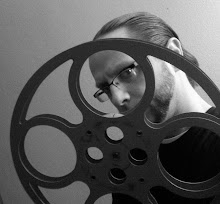Understand this about SKYFALL, the latest 007 film in the
Daniel Craig era; by the time this film ends, the James Bond that the world has
come to know over the past 50 years will finally reveal himself, very much
making Craig’s previous Bond films (CASINO ROYALE, QUANTUM OF SOLACE), prequels
to the character. In the grand scheme of things it works, as further adventures
of Craig’s British secret agent will now carry more weight and have more
meaning. That will ultimately be the legacy of SKYFALL, but how does it fare as
a movie…?
After a failed attempt by Bond (Daniel Craig) and his fellow
agent Eve (Naomi Harris) to recover a hard-drive with the identities of all the
secret agents spread out across the world, Bond is presumably killed and goes
into hiding. The list has been stolen by Silva (Javier Bardem), an old friend
from the past of the head of the British secret service, M (Judi Dench), who
must now fight for her job and her life.
The plot of SKYFALL in the early goings is simple; recover
the list of stolen identities before Silva can post them all on the internet,
which would lead to many agents being exposed and killed. Director Sam Mendes,
in his first Bond outing, is wise enough to not let that storyline serve as the
real guts of SKYFALL. When M is threatened in her job and her life, Bond
switches into a son protecting his mother (mum). The transformation practically
happens on camera, and gives the film the needed and heart and weight for
people to really care.
The film goes a level deeper with the arrival of new Bond
villain Silva, whose connection to M makes for interesting character
development for everyone. The contrast between Bond and Silva, M and Silva, and
M and Bond nearly takes center-stage, and makes this a very unique Bond film in
that the characters and what they have to deal with becomes more important than
the old save-the-world-from-the-monologuing-bad-guy.
Mendes handles his Bond-verse with the experience of a
director who has been 007-ing it for 50 years. The film is saturated in James
Bond-lore, with plenty of winks and nods and in-jokes towards previous films.
None of that ever distracts or derails the film, and Mendez also directs some
outstanding action sequences (there is a motorcycle chase which has to be seen
to be believed) which are spread out enough to keep things from turning into a
headache. Things are further augmented
by the outstanding cinematography by Oscar-winner Roger Deakins. Deakin’s work
with natural light, shadows and silhouettes make SKYFALL a beautiful film to
look at, and without a doubt the best-looking Bond film ever made.
Daniel Craig really comes into his own as Bond here, giving
all the charm, roughness and tender caring that the character needs. Javier
Bardem is a great, flamboyant villain who takes some unexpected turns which could
not have been pulled off by anyone else. He is unfortunately a little
underutilized; appearing in only a handful of scenes. The show is nearly stolen
by Judi Dench, whose M character is finally given something to do other than
sit behind a desk. The supporting cast in the form of Ralph Fiennes and Albert
Finney is also excellent, as is the performance by young Ben Whishaw; Bond’s
perfectly-casted new (Q)uartermaster.
The third act is preceded by an outstanding assassination attempt,
which is so good it overshadows the eventual final battle, which feels a little
drawn-out and tacked-on. That final sequence is a very much a departure from
the rest of the film, but by its end its purpose is clear in several vital
ways. Its impact is permanent and important, making SKYFALL not just a great
James Bond flick, but more importantly, a great movie.
BOTTOM LINE: See it

No comments:
Post a Comment
A few rules:
1. Personal attacks not tolerated.
2. Haters welcome, if you can justify it.
3. Swearing is goddamn OK.